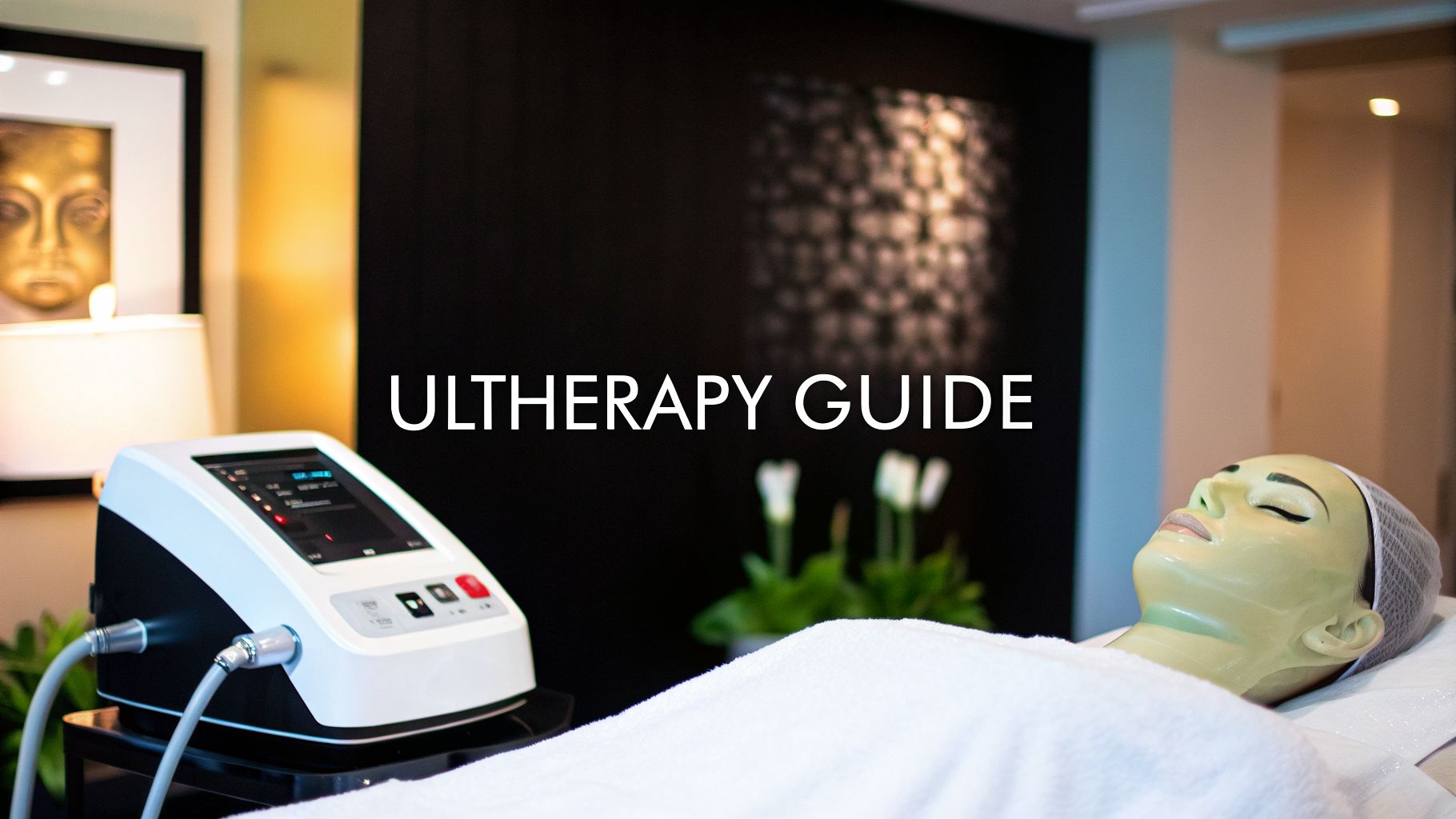
February 21, 2026
How to Prevent Keloid Scars After Surgery A Definitive Guide
Discover how to prevent keloid scars after surgery with our definitive guide. Learn expert strategies for risk assessment, surgery, and post-op scar care.
Sep 15, 2025

Choosing a plastic surgeon is a significant decision that directly impacts both your safety and the success of your procedure. One of the most critical considerations in this choice is whether the surgeon is board-certified. This certification is a hallmark of rigorous training, professional expertise, and commitment to ethical standards. Here, we explore the top five benefits of selecting a board-certified plastic surgeon and why certification offers peace of mind along with superior outcomes.

Becoming a board-certified plastic surgeon requires extensive education and training. Typically, this involves around fourteen to sixteen years of post-high school education, including medical school, residency, and fellowship programs. During this period, surgeons gain hands-on experience in both reconstructive and cosmetic surgery techniques.
To achieve certification, surgeons must pass demanding written and oral exams. These exams evaluate their knowledge, ethical standards, and skill in performing various procedures. The process ensures that only qualified professionals can meet the high standards required for certification.
Board-certified surgeons are committed to lifelong learning. They must renew their certification every ten years through rigorous exams and continuing education courses. This ongoing requirement helps them stay current with the latest surgical techniques and safety protocols.
Certified surgeons possess in-depth expertise in both aesthetic and reconstructive surgeries. This dual skill set allows them to deliver a wide range of procedures, from facelifts and rhinoplasty to body contouring and reconstructive surgery. Their comprehensive training ensures they can tailor treatments to meet each patient’s unique goals.
| Aspect | Duration | Process | Importance |
|---|---|---|---|
| Education & Training | 14-16 years | Medical school, residency, fellowship | Foundational for qualification |
| Certification Exams | Several days | Written and oral tests | Validates knowledge and skills |
| Continuing Education | Every 10 years | Additional courses and exams | Keeps skills current |
| Surgical Expertise | Varies | Hands-on training in various procedures | Ensures high-quality patient outcomes |

Board-certified plastic surgeons strictly follow established safety protocols to protect their patients. This includes thorough preoperative assessments to identify potential risks and ensure patient suitability for surgery. During procedures, surgeons employ advanced techniques and monitor vital signs continuously, ensuring a safe surgical environment.
Performing surgeries in accredited facilities is a cornerstone of safety for cosmetic procedures. Approved centers meet high standards set by organizations like AAAHC, AAAASF, or JCAHO. These standards ensure that the facility maintains proper equipment, staffing, and emergency preparedness, minimizing risks during surgery.
Continual education is vital. Surgeons regularly update their skills through workshops, conferences, and training in the latest surgical methods. They also simulate emergency scenarios to be well-prepared for complications, ensuring patient safety at all times.
Board-certified surgeons commit to high ethical standards, emphasizing patient welfare above all. This includes honest communication about risks and realistic outcomes, obtaining informed consent, and avoiding unnecessary procedures. Their focus remains on safety, confidentiality, and delivering results that meet ethical guidelines.
| Aspect | Details | Additional Info |
|---|---|---|
| Safety Protocols | Followestablished guidelines | Implemented pre, during, and post-op measures |
| Facility Accreditation | Ensures safety standards | Confirmed by recognized organizations |
| Technique Updates | Continuous learning | Participating in training and certification |
| Ethical Standards | Focus on patient welfare | Honest communication and realistic expectations |
Ensuring these practices helps patients feel more confident, knowing their safety is the highest priority.

Being board-certified signals that a surgeon has completed extensive training, rigorous examinations, and adheres to high ethical standards. This credential confirms that the surgeon is qualified to perform complex facial cosmetic procedures safely and effectively.
Board certification enhances transparency by clearly demonstrating a surgeon’s expertise, experience, and commitment to ongoing education. Patients can verify credentials through professional bodies such as the American Board of Plastic Surgery or other recognized organizations, ensuring they choose qualified specialists.
Patients often feel more comfortable and confident knowing their surgeon is board-certified. This verification provides assurance that the procedure will be performed by someone with verified skills, reducing anxiety and increasing trust in the surgical process.
Many professional organizations provide online verification tools where patients can confirm a surgeon’s certification status. Affiliations with reputable academies and societies also indicate a surgeon’s commitment to maintaining high standards and staying current with the latest advancements in facial cosmetic surgery.
| Aspect | What It Means | How It Boosts Trust |
|---|---|---|
| Certification Body | Recognized credential from a trusted organization | Assures high standards and competence |
| Continuing Education | Ongoing learning requirements | Demonstrates dedication to staying updated |
| Facility Accreditation | Surgery in approved, high-standard centers | Ensures safety and quality |
| Professional Affiliations | Membership in respected societies | Reflects peer recognition and commitment to ethics |
Choosing a surgeon with verified credentials, active memberships, and proper facility accreditation significantly increases confidence, leading to more positive surgical experiences and outcomes.

Board-certified plastic surgeons prioritize understanding each patient's unique goals and medical history. This approach allows them to create customized treatment plans tailored to individual needs, leading to more natural and satisfying results. During thorough consultations, surgeons educate patients about procedures, risks, and realistic outcomes, fostering trust and clear communication.
Surgeons certified by reputable boards stay up-to-date with international surgical innovations. They utilize cutting-edge tools and techniques, such as minimally invasive options, modern imaging, and advanced safety protocols. This ensures procedures are safer, less invasive, and with minimal downtime, ultimately enhancing patient satisfaction.
Certified surgeons adhere to strict ethical standards, including honesty and transparency. They provide realistic expectations and avoid unnecessary procedures or overpromising results. Their professional integrity helps patients make informed decisions aligned with their health and aesthetic goals, reducing potential dissatisfaction or complications.
After surgery, board-certified surgeons offer thorough follow-up and ongoing support. This includes monitoring healing progress, managing any complications, and providing advice for recovery. Such dedication ensures optimal results, minimizes risks, and improves overall patient confidence in their care.
| Aspect | Benefits | Additional Details |
|---|---|---|
| Personalized Consultations | Tailored treatment plans, realistic expectations | Focus on individual goals and medical history |
| Use of Advanced Techniques | Enhanced safety, minimal scarring, quicker recovery | Incorporates latest surgical innovations |
| Ethical Guidance | Honest communication, appropriate procedures, patient trust | Avoids unnecessary or unsafe treatments |
| Post-Operative Support | Better healing, satisfaction, and confidence | Comprehensive follow-up and care |
Having access to this level of personalized and ethically guided care distinguishes board-certified plastic surgeons. It ensures patients not only receive the best available techniques but also experience care rooted in integrity, safety, and ongoing support, resulting in outcomes that meet or exceed expectations.

Board-certified facial cosmetic surgeons are committed to maintaining high standards of integrity and professionalism. They follow strict ethical guidelines that emphasize patient safety, confidentiality, and honest communication. This commitment ensures that patients receive transparent information about procedures, realistic expectations, and safe practices.
Recertification and ongoing peer evaluations are integral to maintaining this trust. Surgeons are required to demonstrate their continued education and skill development through periodic recertification exams. Peer evaluations provide regular oversight, ensuring that surgeons adhere to evolving standards and best practices, which directly impacts patient outcomes.
Surgeons dedicated to ethical practice avoid false advertising or overselling procedures. They emphasize honesty about potential results, risks, and recovery times. This transparency helps patients make informed decisions, fostering trust and satisfaction.
Membership in recognized bodies such as the American Society of Plastic Surgeons (ASPS), International Society of Aesthetic Plastic Surgery (ISAPS), and others signifies a surgeon's commitment to ongoing education and adherence to established standards. These organizations promote ethical practices and provide valuable resources for surgeons to stay current with the latest advancements.
| Aspect | Significance | How it Builds Trust |
|---|---|---|
| Ethical Guidelines | Ensures honesty, confidentiality, and patient safety | Patients can rely on surgeons' integrity |
| Recertification & Peer Review | Keeps surgeons current with latest knowledge | Confidence in ongoing competence |
| Honest Marketing | Sets realistic expectations | Patients are well-informed and prepared |
| Professional Organization Membership | Demonstrates commitment to standards | Assures that surgeons adhere to high ethical and professional protocols |
Choosing a facial cosmetic surgeon who upholds these principles guarantees a professional, safe, and ethical experience, aligning with patients' best interests and results.
Certification plays a crucial role in ensuring safety, skill, and professionalism in plastic surgery. It serves as proof that a surgeon has undergone rigorous training, education, and assessment. Patients can trust that a certified surgeon adheres to high standards, follows ethical practices, and keeps up with advancements in the field.
The American Board of Plastic Surgery (ABPS) is the most respected certifying body in the United States. To obtain this certification, surgeons must complete a comprehensive plastic surgery residency, which typically lasts between 5 to 7 years, with at least two years dedicated solely to plastic surgery. They are also required to pass written exams and an intensive oral examination. These assessments test their knowledge, skills, ethics, and safety practices.
Certification’s impact extends beyond validation; it significantly reduces risks associated with cosmetic procedures. Certified surgeons are trained to manage potential complications, use the latest techniques, and operate in accredited facilities that meet strict safety standards. This rigorous process ensures that practitioners are well-equipped to deliver optimal outcomes.
Patients who verify their surgeon’s certification through official platforms, like the ABPS or the American Society of Plastic Surgeons, can feel more confident about their safety and the quality of care they will receive. Ultimately, choosing a board-certified surgeon offers peace of mind and an increased likelihood of satisfactory results, making certification an essential factor in a patient’s decision-making process.
Choosing a plastic surgeon who is board-certified provides notable safety benefits rooted in rigorous training and certification standards. These surgeons typically complete extensive educational and hands-on training, including medical school, residencies, and exams that verify their competence in both cosmetic and reconstructive procedures. Their commitment to ongoing education ensures they stay updated on the latest safety protocols and surgical advancements, reducing the likelihood of complications.
A critical safety factor is the requirement that board-certified surgeons operate in accredited facilities. These facilities meet strict standards for equipment, safety protocols, and staff training, providing a safer environment for complex surgeries. Such accreditation by recognized organizations like AAAASF, JCAHO, or AAAHC ensures that high-quality care standards are met.
Furthermore, board-certified surgeons emphasize personalized care, conducting detailed patient evaluations and creating customized treatment plans. This approach minimizes risks associated with unsuitable procedures or unrealistic expectations. Their adherence to ethical practices, including thorough preoperative assessments and honest patient consultations, further enhances safety.
In summary, choosing a board-certified plastic surgeon significantly reduces the risks of adverse outcomes through rigorous training, use of accredited facilities, and a comprehensive, ethical approach to patient care.
Certified plastic surgeons possess a comprehensive educational background and extensive training. They typically graduate from accredited medical schools, earning either an MD or DO degree. Following their medical training, they complete at least six years of surgical residency, with a minimum of three years focused specifically on plastic surgery, often in accredited programs.
To earn board certification, surgeons must successfully pass rigorous written and oral exams. In the United States, the American Board of Plastic Surgery (ABPS) conducts these assessments, confirming the surgeon’s knowledge, skills, and ethical standards. In Canada, the Royal College of Physicians and Surgeons of Canada performs similar evaluations.
Many surgeons also pursue additional fellowship training in subspecialties such as cosmetic surgery, microsurgery, or craniofacial surgery. This further hones their skills and broadens their expertise.
Maintaining certification requires ongoing education through continuous medical training and strict adherence to ethical practices. These commitments ensure surgeons stay current with the latest advancements, safety protocols, and best practices in the field.
Certification plays a vital role in building trust and confidence among patients seeking cosmetic procedures. When a surgeon is board-certified, it signifies that they have undergone extensive training, including medical school, residencies, and specialized fellowship programs. These rigorous educational standards ensure the surgeon possesses comprehensive knowledge and practical skills.
Additionally, certification involves passing demanding written and oral exams, which assess their competence, ethics, and safety practices. Recognized organizations like the American Board of Plastic Surgery verify that the surgeon adheres to high standards, fostering reassurance among patients.
Patients can verify a surgeon’s certification easily, which enhances transparency and reduces uncertainties. This verification process ensures the surgeon has met strict professional requirements, indicating a genuine commitment to quality and safety.
Being certified also signals that the surgeon follows ethical practices, maintains ongoing education, and uses proven techniques. All these factors contribute to higher patient confidence, making certification an important marker of professionalism and safety.
Overall, choosing a certified surgeon provides reassurance that they have the skills, experience, and ethical standards necessary for a safe and successful procedure.
Certification confirms that the surgeon has completed specialized training in plastic surgery, including both aesthetic and reconstructive procedures. This training often spans over a decade, emphasizing safety, ethics, and technical expertise.
Board-certified surgeons are required to participate in ongoing education, ensuring their skills stay current with the latest surgical advancements.
They operate in accredited facilities meeting high safety standards, further ensuring patient protection.
Patients feel more comfortable choosing a certified surgeon because it provides a clear indicator of qualifications and experience. Certification reduces fears of unqualified practitioners and reassures patients about the safety and quality of care.
This confidence often translates into more open communication, increased satisfaction, and trust in the surgeon’s recommendations.
Certificates are issued by independent, recognized bodies and can be verified online or through official tools. This transparent process allows patients to confirm a surgeon's credentials quickly.
Verification affirms that the surgeon has met stringent educational, experiential, and ethical standards.
Certified surgeons are committed to ethical practices—prioritizing patient safety, honest communication, and realistic expectations. They routinely update their skills and adhere to high standards in surgical and patient care.
This professionalism enhances the overall quality of patient outcomes and reinforces trust in the surgeon.
| Aspect | Importance | Related Assurance |
|---|---|---|
| Skills & Safety | Extensive training & examinations | Certification verifies expertise |
| Patient Confidence | Recognized standards & transparency | Patients can verify credentials |
| Ethical Practice | Commitment to safety & honesty | Continual education & ethical guidelines |
Choosing a board-certified surgeon ensures a higher level of professionalism, safety, and trust, making the journey toward aesthetic goals more secure for patients.
Choosing a board-certified plastic surgeon is crucial for ensuring safety, expertise, and ethical practices. Certification from reputable organizations like the American Board of Plastic Surgery confirms that the surgeon has completed extensive training, including a residency lasting around five to seven years and passing rigorous written and oral exams. These surgeons adhere to high standards of patient care and safety, which helps minimize risks and enhances the likelihood of achieving desired results.
The safety of surgical procedures also depends on the accreditation of the facility where the surgery is performed. Accredited facilities meet strict standards set by organizations such as AAAHC, AAAASF, or JCAHO. These standards address proper equipment, staff qualifications, safety protocols, and emergency preparedness, ensuring a safe environment for patients.
An experienced surgeon with a proven track record in performing the specific procedure you desire can significantly influence the outcome. Many board-certified plastic surgeons have extensive hands-on experience with a variety of surgeries, including facelifts, rhinoplasty, breast enhancements, and body contouring. Reviewing before-and-after photos and patient testimonials can provide insight into their aesthetic skills and success rates.
Comfort and trust in your surgeon are essential. A good surgeon should take time to understand your goals, provide honest advice, and answer all your questions. Feeling respected and cared for encourages a positive experience and helps set realistic expectations. Transparency about potential risks and outcomes is also vital.
The best surgeons stay current with the latest advancements by participating in ongoing training and being members of professional societies like ISAPS, IAAPS, or KAPRAS. This commitment to education ensures they are updated on new techniques, technology, and safety standards, ultimately benefiting their patients.
| Consideration | Details | Why it matters |
|---|---|---|
| Certification | ABPS, ISAPS, IAAPS membership | Ensures qualified and skilled practice |
| Facility accreditation | AAAHC, JCAHO, AAAASF | Guarantees safety standards |
| Procedure experience | Years of practice, specialist in requested surgery | Influences results and safety |
| Communication and trust | Clear, honest dialogue, comfort with surgeon | Enhances patient satisfaction |
| Continued education | Regular updates in techniques and safety protocols | Keeps practice current and safe |
Selecting a qualified plastic surgeon involves assessing certification, facility safety, experience, communication, and ongoing education. Prioritizing these factors helps ensure a safe procedure and satisfying results.
Selecting a board-certified plastic surgeon offers patients unmatched benefits — from expert skill and thorough training to uncompromising safety standards and ethical care. Board certification serves as a powerful assurance of a surgeon's qualifications, ongoing commitment to excellence, and dedication to patient well-being. Patients can trust that board-certified surgeons are equipped with the knowledge, experience, and professionalism necessary to deliver personalized, safe, and aesthetically pleasing outcomes. When planning any plastic surgery procedure, prioritizing board certification not only safeguards your health but also enhances satisfaction with your results, making it an indispensable factor in choosing the right surgeon.

February 21, 2026
Discover how to prevent keloid scars after surgery with our definitive guide. Learn expert strategies for risk assessment, surgery, and post-op scar care.

February 20, 2026
What is Ultherapy treatment? Explore this non-surgical facelift, how it uses ultrasound to lift skin, and what results you can expect from the procedure.

February 19, 2026
Explore stunning cheek filler before and after results. See real patient photos, learn about filler types, and discover what's possible for your facial contour.